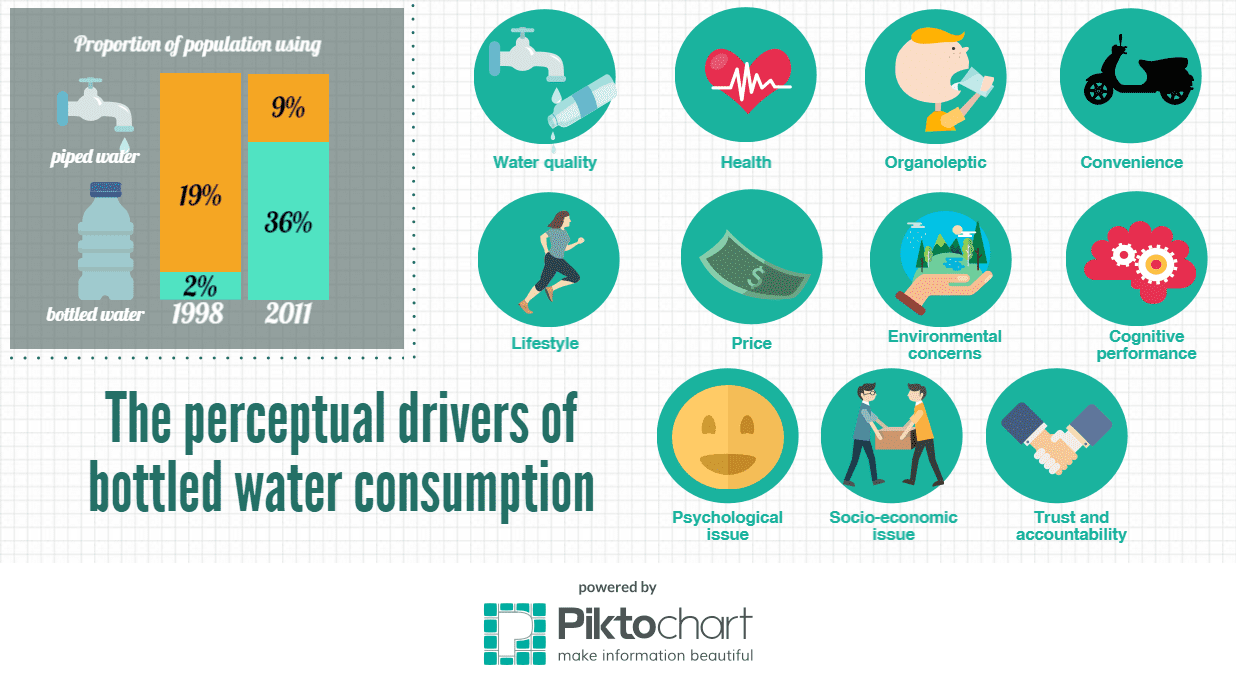Countries with an established and maintained tap water system often perceive bottled water to be of better quality than tap water. However, studies—particularly those in the United States—conclude that bottled water is not necessarily safer, better regulated or more pure than piped water. This indicates that consumers of bottled water have fallen victim to the hype of commercial advertising campaigns.
In Indonesia, drinking water from the tap has never been the norm since it is perceived to have no guarantee of purity and safety. For Indonesian consumers seeking assurances, bottled water is the only choice for a safe and readily available hydration source. In the Review Article “’Bad’ Piped Water and Other Perceptual Drivers of Bottled Water Consumption in Indonesia” published in WIREs Water, Teddy Prasetiawan of the House of Representatives of the Republic of Indonesia and colleagues from Indonesia and the Netherlands discuss the various factors that promote bottled water as superior to tap.
Bottled water advertisements highlight not only factors of quality and hydration but also consider taste, convenience, mental health, and social and environmental values. Consumers consider bottle water more accessible and portable than other sources. Bottled water companies also promote positive social and environmental lifestyles in their advertising, such as waste packaging management, a drinking water provision for the underserved population through Corporate Social Responsibility Program, and environmental conservation. Not drinking enough (bottled) water is also associated with low focus, concentration, and mood.
Although bottled water is laden with many negative social and environmental problems, it is inseparable from the modern life. Bottled water is now the most trusted and preferred drinking water source in Indonesia.
Contributed by Teddy Prasetiawan.

















